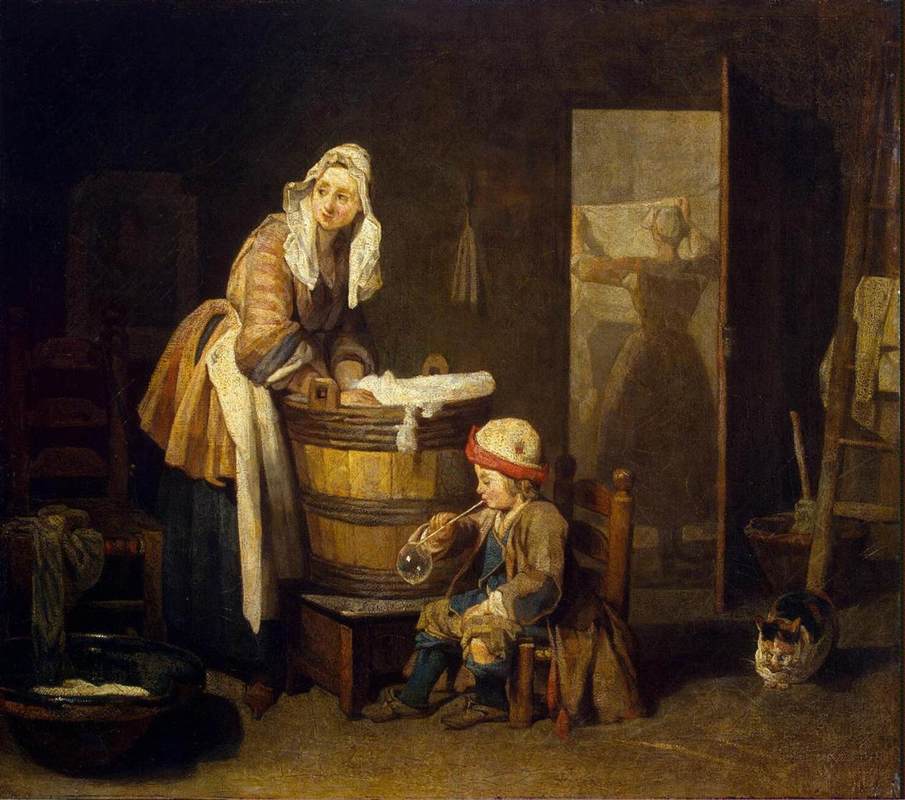|
There are a number of versions of Manon Roland's Memoires, each presented and edited differently by different editors. Manon gave her manuscripts to friends as she wrote them. Some friends, such as Champagneux, kept them religiously, Helen Maria Williams burned a copy of the Notices Historiques when she found out she would be arrested, and Bosc kept what he was given, but did not hand everything to the editors, seeking to protect his friend's reputation. One thing that is missing from the early editions, based on the Bosc manuscripts, is the story of what preceded Manon's childhood religiosity, and her desire to be sent to a convent. In one early edition, we are told that Manon was simply seduced by religion, and told her mother one day that she wanted to go to a convent to be closer to god. But later editions, restoring the passages kept back by Bosc, tell a very different story. When she was 10, a young apprentice of her father's grabbed her hand and placed it on his penis. She cried out, and he was eventually forced to let go. I had a lot of trouble untangling in my head what this scene had placed there. Every time I tried to think about it, some unknown, and unwelcome turmoil rendered such meditation wearisome. At the end of the day, what harm had he done to me? A few weeks later, while she is working alongside her father, he has to leave suddenly and she is left with the apprentice. A band is going past in the streets and she wants to see. The apprentice raises her to the window, and in process, lifts her skirts and presses himself against her. She protests and he tells her he will put her skirt back, but starts caressing her genitals instead. She manages to escape again, and when she turns and sees his face, she is so afraid she nearly faints. This time she had to tell her mother everything. My mother's emotion and her expression of dismay overwhelmed me Her mother used the shame, and the desire to be rescued that Manon felt so strongly, to bring out her religiosity. Within a couple of months, Manon demanded to be sent to a convent.
Manon meant to be scrupulous when recording her memories. But she did hesitate before relating the story of the assaults. She prefaces the story by saying that she is embarrassed by it, wanting her writings to be as chaste as she was. But, she says, it was too important a circumstance to keep a secret. Even as a child, she noted that telling the story to her mother required 'great courage' but that it was necessary.
1 Comment
Whenever I despair about not having enough time to work on some writing project or other, I think of Manon Roland, and her very strict productivity regime. Those who know how to organize their work always have leisure time. It is those that do nothing that lack the time to do anything. Moreover it is not surprising that women who spend their time in useless visiting and who think they are badly dressed if they have not spent a great deal of time at their mirror, find their days too long through boredom and too short for their duties. But I have seen those we call good housewives become unbearable to the world and even their husbands through a tiresome attention to little things. An Eighteenth-century wife and mother, she says, ought to be well enough organised that she can fulfil her housewifely duties and do something useful with her life, such as write philosophy. She has firm ideas as to what those housewifely duties consist of: I expect a woman to keep her family’s linen and clothing in good order, to feed her children, order, or herself cook dinner, this without talking about it, keeping her mind free and ordering her time so that she is able to talk of something else, and to please, at last, through her mood, as well as the charms of her sex. But all this, she tells the reader of her Memoirs, ought not to take up so much of one's time that it would stop us being productive writers. She herself, even at her busiest, never spent more than two hours a day doing housework.
|
About
This is where I live blog about my new book project, an intellectual biography of three French Revolutionary women philosophers. Categories
All
Archives
November 2022
|

 RSS Feed
RSS Feed